
Noir and Hardboiled Mysteries (part 2)
Brook and Sarah continue to learn about noir and hardboiled detective fiction with special guest Frances from the Chronicles of Crime online bookshop. Part 2 of 2. Reading list recommendations: Hardboiled Carroll John Daly, Three Gun Terry (Black Mask, May 1923) Carroll John Daly, Knights of the Open Palm (Black Mask, June 1923) Dashiell Hammett writing as Peter Collinson, Arson Plus (first Continental Op story) (Black Mask, October 1923) Dashiell Hammett, The Maltese Falcon (1930) Dashiell Hammett, The Thin Man (Redbook Magazine, 1933) Raymond Chandler, The Big Sleep (1939) Mickey Spillane, I, The Jury (1947) Ross MacDonald, The Drowning Pool (1950) Richard Stark (aka Donald Westlake), The Hunter, (1962) Lawrence Block, Eight Million Ways To Die, (1982) John D. MacDonald, The Deep Blue Good-Bye, (1964) James Crumley, The Last Good Kiss, (1978) Noir James M. Cain, The Postman Always Rings Twice (1934) Horace McCoy, They Shoot Horses Don’t They (1935) James M. Cain, Double Indemnity (Liberty Magazine, January 1936 as a serial in the magazine) *Cornell Woolrich aka William Irish, It Had To Be Murder, (Detective Dime Magazine, May 1942) This became the Alfred Hitchcock film, Rear Window. *Cornell Woolrich, any short story or novel David Goodis, Dark Passage, (1946) Dorothy B. Hughes, In A Lonely Place, (1947) Fredric Brown, The Fabulous Clipjoint, (1947) Fredric Brown, The Screaming Mimi, (1949) Patricia Highsmith, Strangers On A Train, (1950) James Ellroy, The Black Dahlia (1987) Megan Abbott, Queenpin, (2007) Duane Swierczynski, The Blonde, (2006) Fuminori Nakamura, The Thief (2012) Roger Hobbs, The Ghostman (2013) Others George Pelecanos Ken Bruen Peter Temple Gary Discher Robert Crais Michael Connelly Charlie Houston Dennis Lehane Sam Wiebe Joe Id Philip Kerr For more information: cluedinmystery.com Instagram: @cluedinmystery Contact us: hello@cluedinmystery.com Music: Signs To Nowhere by Shane Ivers - //www.silvermansound.com
![[Bonus] Wake Up Dead Man image](https://media.zencastr.com/cdn-cgi/image/width=112,quality=85/image-files/61e1c276e3ec42007857cff9/e276ac32-e664-464f-956c-7699bdb60aa5.jpg)
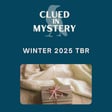
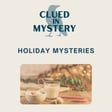
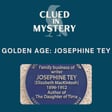
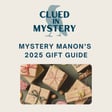
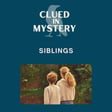

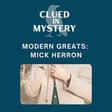
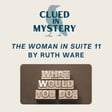
![[Bonus] Read Along: Daughter of Time image](https://media.zencastr.com/cdn-cgi/image/width=112,quality=85/image-files/61e1c276e3ec42007857cff9/b953ad72-c43e-48ca-a18a-b3c216ab90ee.jpg)
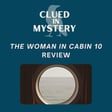
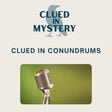
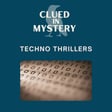
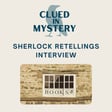
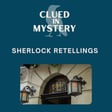
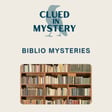
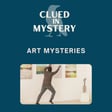
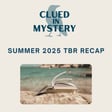
![[Bonus] Thursday Murder Club preview image](https://media.zencastr.com/cdn-cgi/image/width=112,quality=85/image-files/61e1c276e3ec42007857cff9/e51be644-e446-4d32-b89c-12bfc60d30e9.jpg)
![[Re-release] Hallmark Mysteries and More (part 2) image](https://media.zencastr.com/cdn-cgi/image/width=112,quality=85/image-files/61e1c276e3ec42007857cff9/edbc4a22-ebb8-42cb-b211-1f94f4cb920f.jpg)